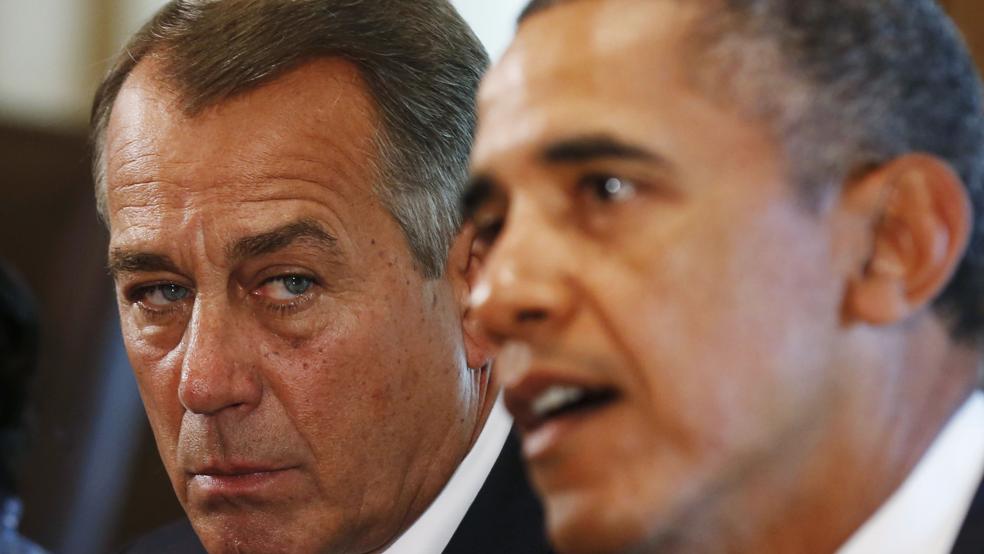The Obama administration fired a warning shot on Wednesday about the debt ceiling, but House Republicans will likely be indifferent to the message.

Treasury Secretary Jack Lew sent a letter to congressional leaders saying that the government will be running on fumes by Oct. 17. By that specific date, the government will have maxed out its extraordinary measures—in place since May—to buy several months time before it was necessary to raise the debt ceiling.
“We estimate that, at that point, Treasury would have only approximately $30 billion to meet our country's commitments,” Lew wrote. “This amount would be far short of net expenditures on certain days, which can be as high as $60 billion. If we have insufficient cash on hand, it would be impossible for the United States of America to meet all of its obligations for the first time in our history.”
The Treasury secretary reiterated that President Obama would not negotiate on any increase, since the debt ceiling applies to spending commitments already made by Congress. Lew also stressed that a House Republican plan—in case the government’s borrowing authority is not increased—to prioritize payments “is simply default by another name.”
None of these arguments are new. To many House Republicans, they are political clichés. Lew is right to note how disastrous a debt ceiling breach would be, although his argument on the default is a bit disingenuous because ratings agencies have said it might not qualify as an actual default so long as the national debt still gets serviced.
But the real fright in the letter is not its contents, but its existence as one of the sole communications in the absence of any debt ceiling talks.
If the White House refuses to negotiate, these kinds of letters are the only tools it has … until what the disasters being predicted actually happens.
House Republicans are making what the Obama administration considers outrageous demands: a year-long delay for implementing Obamacare, tax reform, and means-testing Medicare. The president is making a principled stand against the idea that the nation’s finance be used as a hostage in political negotiations.
Yet so long as Obama refuses to do with Boehner what he is willing to do on Syria, Iran, and struggles between Israel and Palestine—open up diplomatic channels for a peaceful settlement—Republicans will try to exploit this to their advantage.
After Boehner met with Lew earlier this month, his office issued this statement:
“Coupling efforts to reduce America's debt and deficit with increases in the debt limit is a common-sense policy that has been used under Presidents Ronald Reagan, George H.W. Bush, Bill Clinton – and, most recently, President Obama himself. In fact, every major effort to deal with the deficit over the past 30 years has been tied to the debt limit. This time should be no different.”
Of course, this time is clearly different in the worst ways possible. Even before they address the debt ceiling, lawmakers are still in risking a government shutdown on the budget. Republicans who claims they base their policies on hard numbers seem unimpressed by Lew’s figures. And Obama has no desire to sit at a bargaining table.




